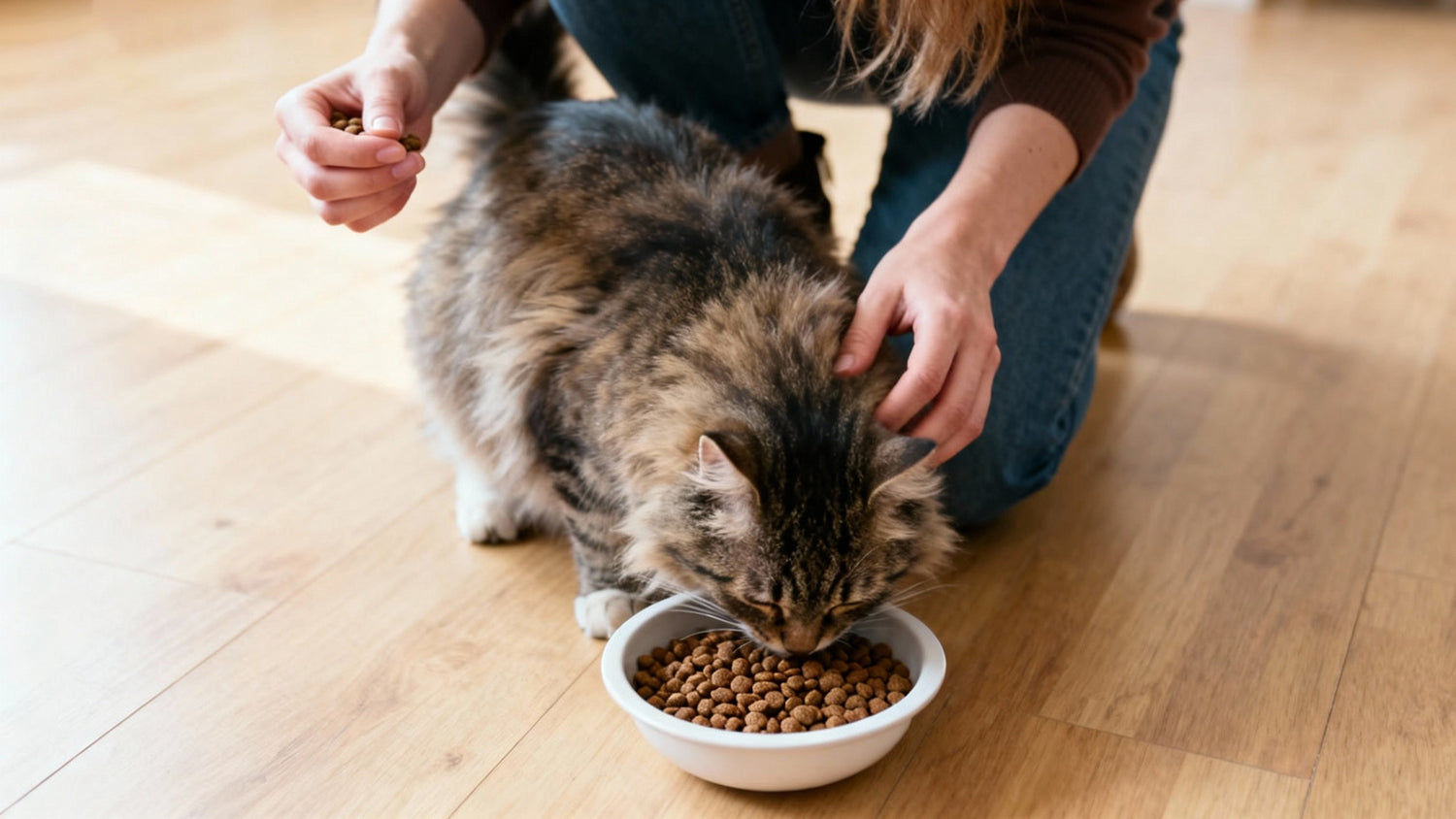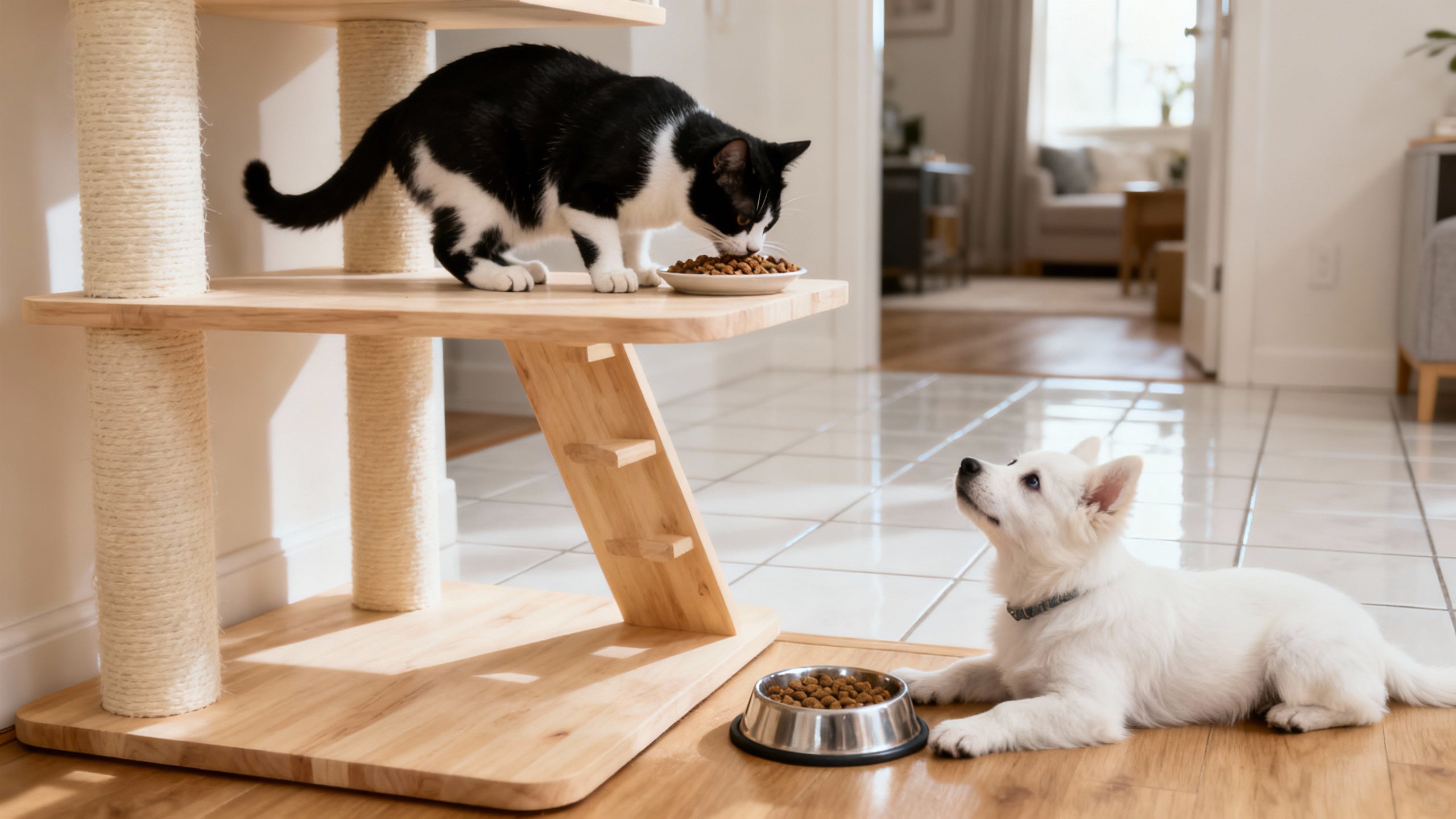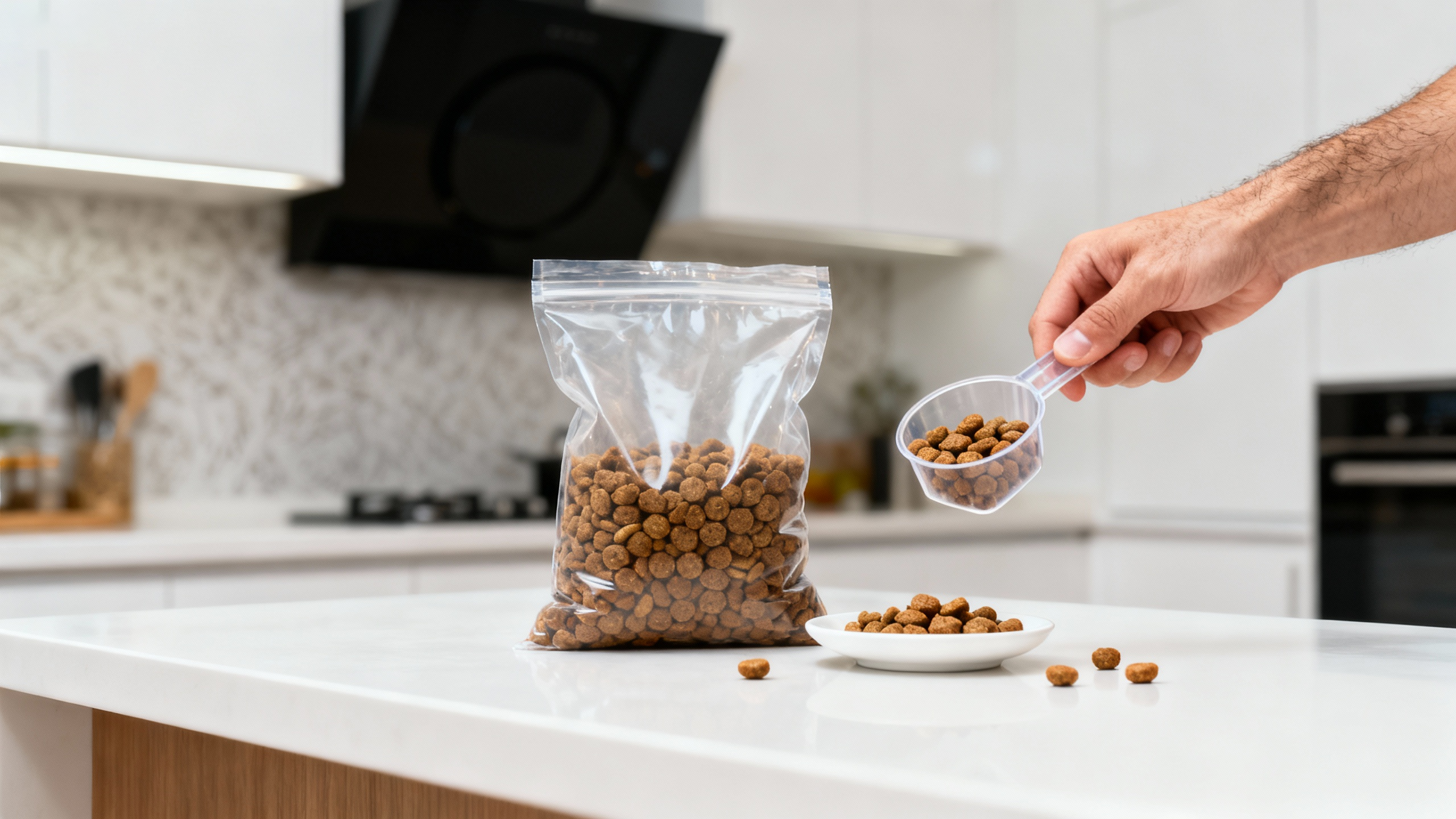When you look at the list of ingredients on the side of the cat food bag, you'll see many important nutrients listed. But there's one that's not merely beneficial — it's life and death to your feline friend. That's taurine. While many pet owners know it's important, not everyone is familiar with why.
This guide will simply and succinctly detail what taurine is, why it's impossible for your cat to live without it, the devastating consequences of not having sufficient, and the ways you can easily ensure your furry feline has everything it needs.
What Is Taurine?
Taurine is an amino acid. You can imagine the amino acids to be the little building blocks that proteins are made up of. But taurine has an important distinction that separates it, particularly for the felines. Unlike humans and canines, whose bodies can produce adequate taurine by themselves from other amino acids, the feline's body is not capable of. That means they need to obtain 100% of the taurine they need directly from what they eat. That is why it is an "essential" feline amino acid—it is strictly necessary that they eat it.

The Feline Factor: Why Taurine is Uniquely Essential for Cats
The answer to why cats require it lies within their fundamental biology.
Cats are "obligate carnivores," i.e., outright carnivores. Their entire physiological system, from the teeth to the intestines, is designed to derive all its nutrients from animal tissue. In the wild, cats would get their nutrients by hunting and devouring prey. Taurine is extremely concentrated within animal muscular and cardiac, and brain tissue—the very substances that a cat would devour naturally.
The Dangers of Taurine Deficiency
Lack of taurine in the feline's nutrition is not an insignificant problem but rather a slow but deadly issue. The health consequences are severe and often irreversible by the time they become obvious.
Dilated Cardiomyopathy (DCM) — A Failing Heart
Taurine is critically important to the proper functioning of the healthy feline heart. Without sufficient taurine, the muscular walls of the feline's heart thin and weaken, and lose effectiveness at pumping the blood. This is called Dilated Cardiomyopathy (DCM) and progresses to cause congestive heart failure, leading to death if not remedied.
Feline Central Retinal Degeneration (FCRD) — Irreversible Blindness
Taurine is also one of the most important nutrients for maintaining the health of the retina, the light-sensitive layer at the back of the eye. A taurine deficiency causes the retinal cells to degenerate and die. This damage leads to a gradual but permanent loss of vision, eventually resulting in total blindness.
Other Critical Health Issues
The damage doesn't stop there. A lack of taurine can also lead to poor digestion, a weakened immune system, and severe reproductive problems in female cats, including miscarriages and developmental defects in their kittens.
How to Spot the Signs of Taurine Deficiency
A major danger of taurine deficiency is that the signs are very subtle at first and only become noticeable after significant and often irreversible damage has already occurred. This is why prevention is far more important than treatment.
Be aware of these potential warning signs:
- Lethargy and a general lack of energy
- Difficulty breathing, coughing, or open-mouthed panting
- Poor vision, especially at night (you might notice your cat bumping into furniture)
- A dull, poor-quality coat
- Stunted growth in kittens

How to Ensure Your Cat Gets Enough Taurine
The good news is that preventing taurine deficiency is incredibly simple. You just need to be mindful of what you're feeding your cat.
Choose "Complete and Balanced" Commercial Cat Food
This is the easiest and safest way to ensure your cat's health. In the United States, look for a statement on the packaging from AAFCO (The Association of American Feed Control Officials). Any commercial cat food labeled as "complete and balanced" for your cat's life stage (kitten, adult, all life stages) is legally required to contain sufficient levels of taurine in cat food to meet their needs. Taurine requirements may vary slightly depending on your cat's age, which is also why knowing when to transition between different life-stage formulas is important for optimal nutrition.
Natural Foods with Taurine for Cats
If you want to offer your cat healthy treats, there are many natural foods with taurine for cats. These should be given as a supplement to their main diet, not as a replacement. Excellent sources include:
- Animal Muscle Meat: Especially dark meat poultry like chicken and turkey thighs.
- Organ Meats: Animal heart and liver are taurine powerhouses.
- Fish and Shellfish: Tuna, sardines, and shrimp are all rich in taurine.
The Risks of Homemade and Vegan Diets
Understand the risks associated with some feeding options. You would never feed the cat vegetarian or vegan feed. Biologically, it is not possible for the cat to obtain the required nutrients, primarily taurine, from plants. Such a diet will always have grave medical consequences.
Likewise, homemade diets are very hazardous unless they are specifically developed by an accredited veterinary nutritionist. It is extremely challenging to obtain the proper balance of vitamins and minerals, and also the right proportion of the amino acids, and the tragic end to many well-meaning but inadequately prepared homemade rations is the taurine deficiency.
The Bottom Line on Taurine: Feed Complete, Balanced Food for Lifelong Health
For the wellness of your feline, taurine is not some optional add-on but a requirement. The effects of deficiency are tragic but happily also totally preventable. The best and safest way to take care of your feline is to feed it an excellent quality commercially prepared cat food that is "complete and balanced," guaranteed. By doing this, you are supplying the basic components for an extended, healthy and full life with your beloved pet.
Frequently Asked Questions About Taurine for Cat Health
Can my cat have too much taurine?
It's virtually impossible for a cat to overdose on taurine from their diet. It is a water-soluble amino acid, meaning any excess is simply flushed out of the body through the urine.
Can my cat just eat dog food?
Absolutely not. This is a common and very dangerous mistake. Dog food does not contain the high levels of taurine that cats require to survive. A cat fed a long-term diet of dog food will develop a fatal taurine deficiency.
Does dry food have as much taurine as wet food?
As long as the food is labeled "complete and balanced" according to AAFCO standards, both dry and wet food will contain the appropriate amount of taurine to keep your cat healthy.




Leave a comment
This site is protected by hCaptcha and the hCaptcha Privacy Policy and Terms of Service apply.